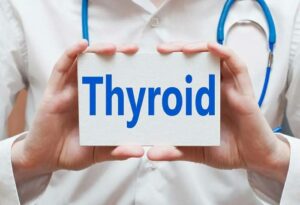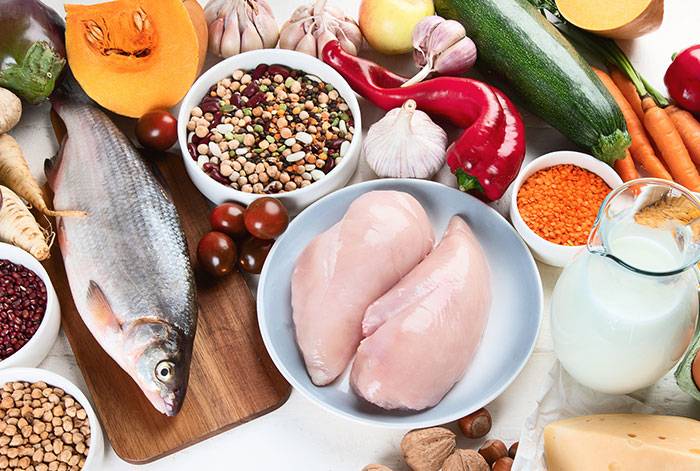Hypothyroidism is a disorder in which the body fails to create enough thyroid hormones, which are essential for growth and metabolism. It also frequently leads to inefficient fat loss and weight management. As a result, for those who want to lose weight, it’s critical to address their thyroid issues in order to accelerate their weight reduction efforts. Take a look at these food tips to help you achieve your weight-loss goals.
1. Sugar and high-carbohydrate diets should be avoided-
Sugar and high-carbohydrate foods are the worst for everyone, so if you want to keep your thyroid in balance and lose weight, limit your sugar and high-carbohydrate intake. Consider replacing it with foods that do not boost insulin levels, such as those with a low glycemic index.


2. Fibre is essential-
Fibre content aids in the regulation of digestion and the elimination of harmful pollutants, as well as the control of calorie intake and, finally, the promotion of weight loss. Fibre-rich fruits, vegetables, and pulses should be included in your daily diet.
3. Selenium-rich foods-
Start including selenium-rich foods in your diet, such as Brazil nuts, sardines, eggs, and legumes, because they help the body produce plenty of TSH hormones, and selenium in food helps the body destroy free radicals and enhance immunological function.
4. Iodine consumption should be increased-
Iodine, as an essential mineral, serves to enhance thyroid function in the body, according to specialists. As a result, if you have hypothyroidism, increasing your iodine consumption from fish, salt, dairy, and eggs will boost your body’s TSH production.
5. Include gluten-free foods in your diet-
Regular consumption of gluten-free goods may aid in the management of hypothyroidism and weight loss. Gluten sensitivity and Hashimoto’s thyroiditis, which causes an underactive thyroid, have been discovered to be linked.
6. Change the time of your meals-
Thyroid patients may fast, limit the amount of meals they eat, or eat them at a specific time. Following a fasting schedule or setting a meal time can help reduce cravings, processed food consumption, and control hunger hormones, according to experts.
7. Keep yourself hydrated-
Hydration is crucial for weight loss since it aids digestion and eliminates toxins from the body. It can also help you lose weight in the long run by reducing your appetite.
8. What should you eat more of?
Experts recommend a nutritious diet that includes eggs, meat, fish, vegetables, gluten-free cereals, and nuts.
9. Things to stay away from-
Goitrogen-rich foods should be avoided at all costs because they affect thyroid function and weight reduction. Also avoid foods like soy, millets, highly processed foods, and cruciferous veggies.
- March Madness 2025: Printable Bracket, Game Schedule & How to Watch - March 13, 2025
- March Madness Miracles: Worst Records to Get an NCAA Tournament Bid - March 13, 2025
- NCAA DI Wrestling Championships 2025: How to Watch, Brackets & Selection Info - March 13, 2025


